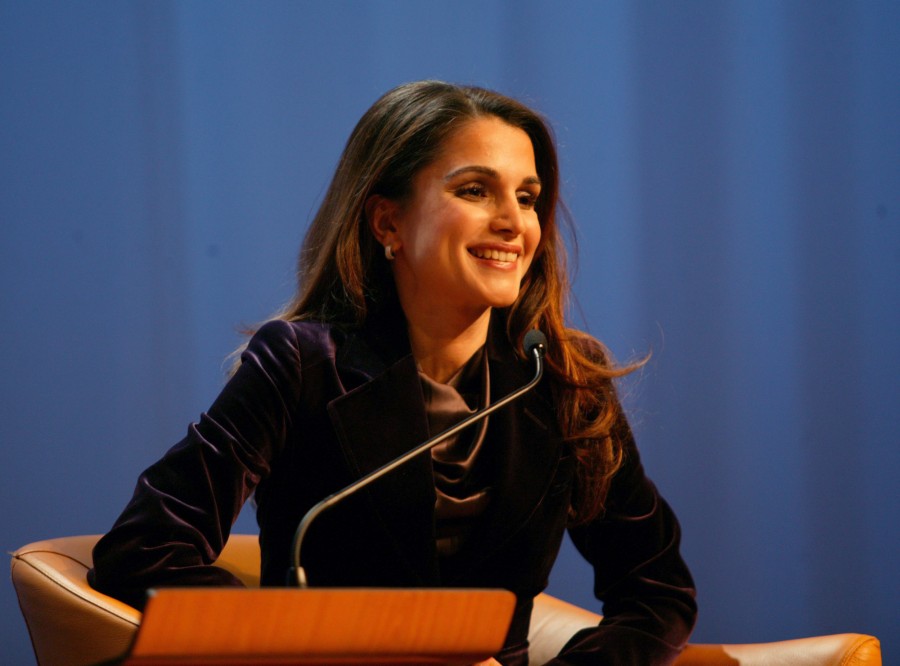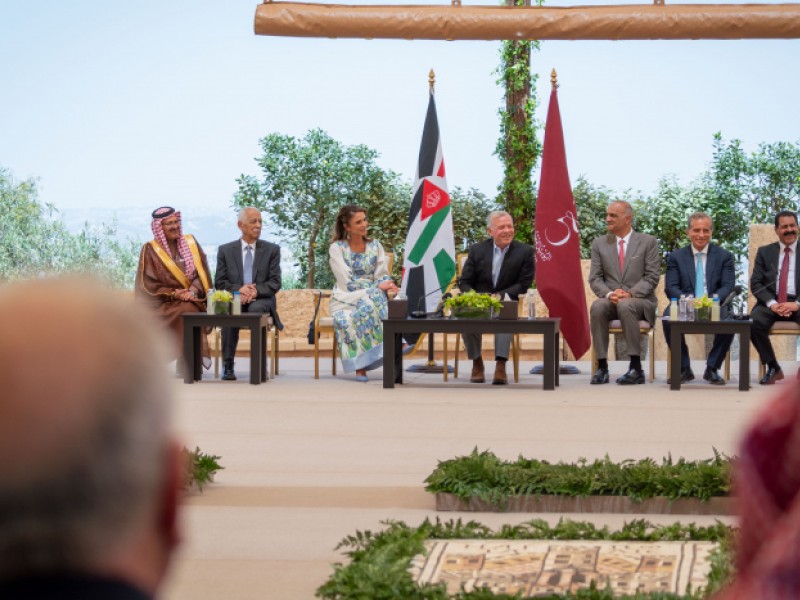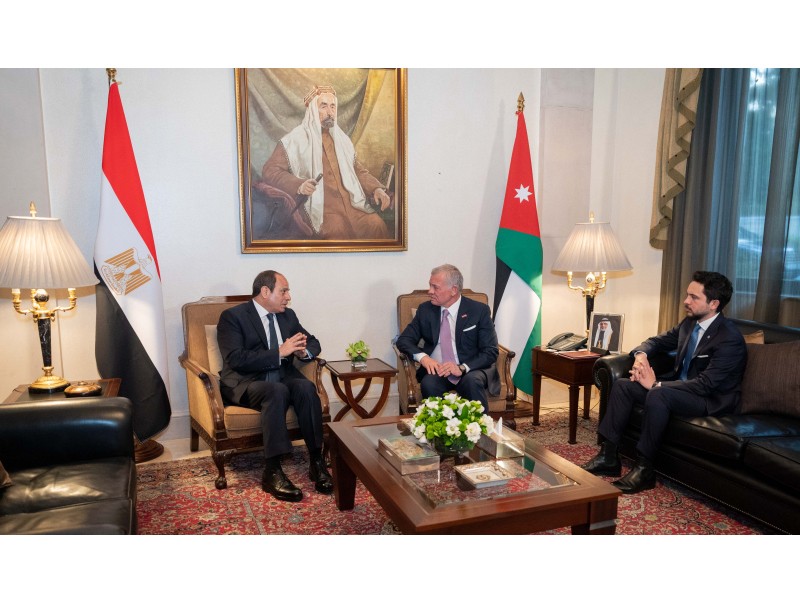In Davos, Queen Rania Addresses Challenges Facing Muslim World, Stresses Solutions Found in Youth

(Office of Her Majesty – Press Department – Davos) - The Muslim world is at a “critical crossroad of self examination and self definition” as it faces headlines of misconception and misunderstanding around the world, propagated by an extremist minority. That was Her Majesty Queen Rania Al-Abdullah's main message to over 200 delegates attending a panel discussion during the World Economic Forum in Davos, Switzerland on Thursday. Queen Rania, asserted however, that tapping into the energy and talent of youth is a priority solution to the region's most pressing challenges.
Sitting alongside Hameed Karzai, President of Afghanistan, Parvez Musharraf, President of Pakistan and Hajim Alhasani, President of the Iraq National Assembly at a plenary session entitled ‘Muslim Societies in the Modern World,' Queen Rania stressed that "the challenge that has dominated the headlines and captured everyone’s attention is the rise of a minority group of extremists Muslims who have taken it upon themselves to distort Islam in order to justify violent actions and crimes against humanity.”
The session, chaired by Thomas Friedman, a Foreign Affairs columnist from the New York Times, focused on balancing the demands of modernism and tradition in Muslim countries and the priorities facing countries in the Muslim world.
Today’s extremists, she added, have exploited “21st century technology, means of communication, mobility to spread their message and magnify the resonance of what they are trying to do”. The Queen pointed our that this has, however, led to a “reaffirmation of the basic principles of Islam...It has been a wake up call for us, it has brought us together.”
For Musharraf, there is no conflict between modernization and Islam, noting that the teachings of Islam have been hijacked by the extremists. Hamid Karzai agreed, defining modernism as economic growth, adaptation of technology, better education. Democracy and its associated values should also prove no problem as “Islam’s principles are inherently democratic – equality, participation and the protection of the unprotected.”
Queen Rania highlighted Jordan’s leadership role in combating extremism, starting with the Amman Message which “emphasizes the true teachings of our religion and calls for the peaceful coexistence of humanity,” and followed by the Islamic conference which was held in Amman last year, where 180 religious scholars from 45 countries, and all eight schools of Islam, came together to condemn extremism, reject violence and call for moderation.
Jordan has also been taking the lead elsewhere. Asked about the number one priority for Jordan, Queen Rania was quick to answer: education.
“Youth are the catalysts for change, and change is the only constant,” she said, “equipping them with the right tools to compete on the international stage, creating opportunities for our youth, should be the overriding motivation in everything and anything that we do.”
Her Majesty highlighted the need to create a generation of thinkers and innovators by accelerating the many education reform efforts currently underway, from introducing technology and innovation into the classroom, to training teachers and upgrading curriculums.
In reply to a question from the audience on the issue of women in the Middle East, Queen Rania acknowledged that this is a global challenge, and not one that is unique to the Middle East.
Her Majesty pointed to a paradox in the status quo of women in the region: on the one hand, the MENA is one of the highest spenders on education, resulting in high educational attainment amongst women, and yet, on the other hand, women’s participation in the labor force remains amongst the lowest in the world.
“We are making huge investments in women, but we are depriving ourselves of the returns”, she said, adding that “gender equality is not just about parity in numbers, it is about changing mindsets and challenging ingrained social norms and attitudes.”
When asked about the results of the Palestinian elections, Queen Rania underlined the need for the world to respect the wishes of the Palestinian people and expressed hopes that peace process will move forward.
The following day, and in her capacity as the head of the Forum of Young Global Leaders (YGLs) Nomination Committee, and the only Arab member of the World Economic Forum Foundation Board, Queen Rania met with a group of YGLs to discuss their on-going programs and the developments that arose since their Inaugural Summit in Zermatt, Switzerland, last June.
The 2005 YGLs, all aged 40 or younger, represent 68 countries: 71 from Europe, 63 from North America, 49 from Asia, 19 from the Middle East and North Africa, 19 from sub-Saharan Africa and 17 from Latin America.
Each year, the Forum brings together 200-300 young leaders, selected out of 8,000 candidates, who are currently internationally prominent, to serve for a period of five years, and eventually becoming part of a 1111-member community by the year 2009.
Queen Rania also attended a YGL board meeting conducted to review the Forum's accomplishments this past term, followed by a WEF Foundation Board meeting.
Based in Geneva, Switzerland, the Forum of Young Global Leaders is an independent, non-profit organization, supervised by the Swiss Government and established by Professor Klaus Schwab in 2004. It acts in close cooperation with the World Economic Forum.
Featured
Queen Rania's official website
This website does not support old browsers. To view this website, Please upgrade your browser to IE 9 or greater
Your browser is out of date. It has known security flaws and may not display all features of this and other websites. Learn how to update your browser



